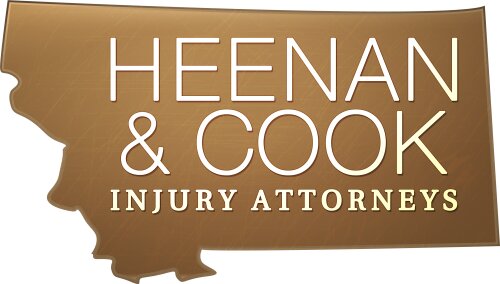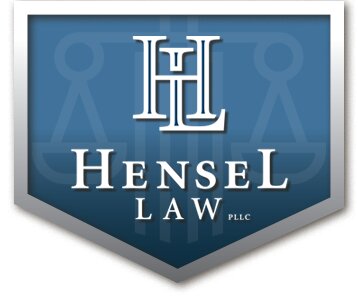Best Work Injury Lawyers in Billings
Share your needs with us, get contacted by law firms.
Free. Takes 2 min.
List of the best lawyers in Billings, United States
About Work Injury Law in Billings, United States
Work injury law in Billings centers on the Montana workers' compensation system. This no-fault program provides medical care, wage replacement, and related benefits to employees who are injured or become ill due to work. The aim is to quickly restore workers to health and income while limiting litigation between employees and employers.
In Montana, most work injuries are handled through the state’s workers' compensation framework rather than through personal injury lawsuits. Attorneys in Billings often help clients navigate timely medical treatment, benefit determinations, and the appeals process when benefits are denied or terminated. Understanding the local procedures can improve the likelihood of a fair outcome.
“Montana workers’ compensation is a no-fault system that provides medical benefits and wage replacement to injured workers.” - Montana Department of Labor & Industry
For residents of Billings, the relevant governing framework includes state statutes, administrative rules, and the procedures of the Montana Workers' Compensation Court. Those sources outline who is covered, what benefits exist, and how disputes are resolved.
“The Montana Workers' Compensation Court handles disputes and appeals related to workers’ compensation claims in the state.” - Montana Workers' Compensation Court
Why You May Need a Lawyer
Billings workers who experience a work injury may encounter issues that benefit from legal guidance. Below are concrete, real-world scenarios where consulting an attorney can help protect rights and ensure proper benefits.
- A construction worker in Billings suffers a back injury on a jobsite and the insurer delays medical care requests or questions the injury's connection to work, delaying treatment.
- A hospital nurse develops a repetitive stress injury and the claim is denied as pre-existing or not causally related to work duties, requiring review and evidence gathering.
- An oil field technician in Billings is offered a settlement before medical stability, but the proposed amount does not reflect long-term impairment or potential future medical needs.
- A retail employee sustains a traumatic injury and the employer disputes wage loss benefits during temporary disability, necessitating calculation of actual earnings and offsets.
- The billings-based worker is told to see a specific doctor for treatment and suspects bias or improper authorization, prompting a medical provider dispute.
- A claimant faces a denial on a second opinion or seeks vocational rehab services to return to work, requiring guidance on eligibility and timelines.
In these circumstances, an attorney can help with gathering medical records, building medical-legal evidence, appealing denials, and negotiating settlements or court hearings. An experienced lawyer can also clarify whether a case involves the state workers' compensation system or potential third-party liability claims.
Local Laws Overview
Billings residents are governed by Montana state laws governing work injuries. The following are key named sources to be aware of when pursuing or defending a workers' compensation claim.
Montana Workers' Compensation Act (Mont. Code Ann. Title 39, Chapter 71) lays out who is covered, the types of benefits, and the basic procedures for claims and disputes. This statute forms the backbone of work injury remedies in Montana, including Billings.
Montana Administrative Rules related to Workers' Compensation (ARM rules) interpret and implement the Workers' Compensation Act. These rules cover medical benefits, claim processing, and dispute resolution procedures. Check the official ARM pages for current text and updates.
Montana Workers' Compensation Court procedures govern appeals and hearings when disputes arise over benefits, medical care, or impairment determinations. The Court oversees the adjudication of contested claims and ensures due process for injured workers.
For current text and official guidance, see these government resources:
- Montana Department of Labor and Industry - Workers' Compensation
- Montana Code Annotated Title 39, Chapter 71 - Workers' Compensation Act
- Montana Workers' Compensation Court
- Montana Administrative Rules (ARM) related to workers' compensation
Recent changes and trends in Montana workers' compensation are published by the Montana Department of Labor & Industry and reflected in the Administrative Rules. Always verify the current text on official sites before relying on a specific provision.
Frequently Asked Questions
What is workers' compensation in Montana?
Workers' compensation is a no-fault system providing medical care and wage benefits for job-related injuries. It is designed to avoid personal lawsuits for most workplace injuries.
How do I start a workers' comp claim in Billings?
Notify your employer promptly, obtain a claim form, and submit it to the employer or its insurer. An attorney can help ensure all required forms are complete and timely.
How long do I have to report a work injury in Montana?
Timelines vary by injury type, but it is critical to report as soon as possible. Delays can affect eligibility for benefits and medical care.
What medical benefits am I entitled to?
You are entitled to reasonable and necessary medical treatment related to the injury, as authorized under the workers' compensation system.
Do I need a lawyer for a workers' comp claim in Billings?
While not required, a lawyer can help with complex medical disputes, denials, and appeals, and may improve overall outcomes.
How much wage replacement may I receive?
Wage replacement is based on average weekly wage and disability status. The exact amount depends on your income, caps, and disability type.
What if my claim is denied or disputed?
Denied claims can be appealed through the Montana Workers' Compensation Court. An attorney can help with evidence, hearings, and settlements.
Do I need to prove fault for a workers' comp claim?
No. Workers' compensation is a no-fault system; you do not need to prove fault to receive benefits.
Can I sue my employer for a work injury?
In most cases, workers' compensation excludes direct employer liability in a civil lawsuit. Some exceptions may apply in third-party or intentional harm scenarios.
What is a permanent impairment rating?
A permanent impairment rating assesses long-term functional limitations after the injury. It can affect impairment benefits and work restrictions.
How long does the appeals process take?
Appeals can take several months to over a year, depending on the complexity of the case and court backlog.
What is a settlement vs a trial in this context?
A settlement resolves the claim through agreement, often with a structured payment plan. A trial is a formal hearing before a Workers' Compensation Judge.
Additional Resources
- Montana Department of Labor and Industry - Workers' Compensation - Administers the state workers' compensation program, approves medical benefits, and oversees employer compliance. dli.mt.gov/WorkComp
- Montana Legislative Website - Mont. Code Ann Title 39, Chapter 71 - Official statute text for the Workers' Compensation Act, including coverage and benefit rules. leg.mt.gov
- Montana Workers' Compensation Court - Official court system for hearing disputes and appeals related to workers' compensation claims. wcc.mt.gov
Next Steps: Finding and Hiring a Work Injury Lawyer in Billings
- Clarify your goals and gather all injury documents, medical records, employer communications, and your insurance details. Set a realistic timeline for your claim.
- Search for local Billings attorneys who specialize in workers' compensation and have recent case experience in Montana courts. Use official attorney directories and state resources to verify credentials.
- Schedule initial consultations with 2-3 attorneys. Ask about their approach to evidence gathering, timelines, and dispute resolution options.
- Prepare questions for consultations focusing on fees, court experience, and likely outcomes based on your injury type and medical status.
- Ask about contingency fee arrangements and any upfront costs. Ensure you understand the fee structure before hiring a lawyer.
- Choose an attorney and sign a written agreement outlining scope of representation, fees, and anticipated milestones. Establish communication expectations and updates.
Lawzana helps you find the best lawyers and law firms in Billings through a curated and pre-screened list of qualified legal professionals. Our platform offers rankings and detailed profiles of attorneys and law firms, allowing you to compare based on practice areas, including Work Injury, experience, and client feedback.
Each profile includes a description of the firm's areas of practice, client reviews, team members and partners, year of establishment, spoken languages, office locations, contact information, social media presence, and any published articles or resources. Most firms on our platform speak English and are experienced in both local and international legal matters.
Get a quote from top-rated law firms in Billings, United States — quickly, securely, and without unnecessary hassle.
Disclaimer:
The information provided on this page is for general informational purposes only and does not constitute legal advice. While we strive to ensure the accuracy and relevance of the content, legal information may change over time, and interpretations of the law can vary. You should always consult with a qualified legal professional for advice specific to your situation.
We disclaim all liability for actions taken or not taken based on the content of this page. If you believe any information is incorrect or outdated, please contact us, and we will review and update it where appropriate.










